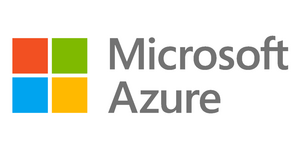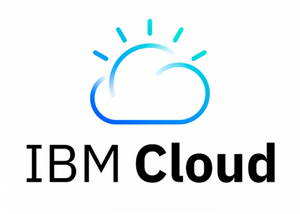The Financial Industry Clouds – The future is “Cloudy.”
The Evolution of Cloud Infrastructure
The cloud computing market has proliferated in recent years, with businesses of all sizes adopting cloud-based solutions to improve their operations. The first generation of cloud computing was based on Infrastructure as a Service (IaaS), which offered businesses the ability to rent computing resources, such as servers and storage, on demand. The second generation of cloud computing was based on Platform as a Service (PaaS), which offered businesses the ability to develop and deploy applications on a cloud-based platform. Finally, the third generation of cloud computing is based on Software as a Service (SaaS), which allows businesses to use software applications hosted and managed by a cloud provider.
Overview of Industry Clouds
Industry clouds are a new type of cloud computing platform that is designed to meet the specific needs of a particular industry. Industry clouds typically offer a suite of cloud-based applications and services tailored to that industry’s particular needs. For example, an industry cloud for the healthcare industry might offer applications for managing patient records, scheduling appointments, and billing patients.
Role of Industry Clouds in Market Dynamism
Industry clouds are playing an increasingly important role in the global economy. They are helping businesses to improve their operations, reduce costs, and innovate more quickly. Industry clouds are also helping to drive market dynamism by enabling new business models and creating new growth opportunities.
Understanding SaaS, PaaS, and IaaS
Software as a Service (SaaS)
Software as a Service (SaaS) is a cloud computing delivery model that provides access to software applications over the Internet. SaaS applications are typically hosted and managed by the cloud provider, and users can access them from any device with an internet connection. SaaS is a popular choice for businesses of all sizes because it offers several advantages, including:
- Cost-effectiveness: SaaS applications are typically more cost effective than traditional on-premises software.
- Scalability: SaaS applications can be scaled up or down to meet changing business needs.
- Uptime: SaaS applications are typically highly available, with uptime rates of 99.9% or higher.
- Security: SaaS applications are typically hosted in secure data centers, and cloud providers usually offer a variety of security features to protect customer data.
Platform as a Service (PaaS)
Platform as a Service (PaaS) is a cloud computing delivery model that provides a platform for developing, deploying, and managing applications. PaaS platforms typically include a variety of features, such as:
- A development environment with tools for coding, debugging, and testing applications.
- A runtime environment for deploying and running applications.
- A management console for managing applications.
PaaS platforms can be used to develop and deploy various applications, including web, mobile, and enterprise applications. In addition, PaaS platforms offer many advantages, including:
- Cost-effectiveness: PaaS platforms can be much more cost effective than traditional on-premises development and deployment environments.
- Scalability: PaaS platforms can be easily scaled up or down to meet changing business needs.
- Rapid development: PaaS platforms can help developers to develop and deploy applications more quickly.
- Reduced IT costs: PaaS platforms can help businesses to reduce IT costs by eliminating the need to purchase and maintain their own development and deployment infrastructure.
Infrastructure as a Service (IaaS)
Infrastructure as a Service (IaaS) is a cloud computing delivery model that provides access to computing resources, such as servers, storage, and networking, over the Internet. IaaS is a popular choice for businesses that need to scale their IT infrastructure quickly and easily. IaaS offers many advantages, including:
- Cost-effectiveness: IaaS can be more cost-effective than traditional on-premises IT infrastructure.
- Scalability: IaaS can be easily scaled up or down to meet changing business needs.
- Flexibility: IaaS allows businesses to choose the computing resources they need.
- Agility: IaaS can help businesses become more agile by quickly deploying new applications and services.
Integrating SaaS, PaaS, and IaaS in Industry Clouds
Industry clouds typically integrate SaaS, PaaS, and IaaS services to provide a comprehensive solution that meets the specific needs of a particular industry. For example, an industry cloud for healthcare might integrate SaaS applications for managing patient records, PaaS services for developing and deploying mobile applications, and IaaS services for hosting and managing infrastructure.
Benefits of Industry Clouds
Industry clouds offer several benefits to businesses, including:
- Tailored solutions: Industry clouds are designed to meet the specific needs of a particular industry. This means they can provide businesses with the functionality they need to operate more efficiently and effectively.
- Increased efficiency and effectiveness: Industry clouds can help businesses improve their operations in several ways. For example, they can help businesses to automate tasks, improve communication, and make better decisions.
- Enhanced flexibility and scalability: Industry clouds are designed to be flexible and scalable. This means that they can be easily adapted to meet the changing needs of businesses.
- Greater security and compliance: Industry clouds are typically hosted in secure data centers. They also offer a variety of security features to protect customer data.
Deep Dive into Financial Services Clouds
The financial industry has undergone a significant digital transformation over the last decade, and the emergence of Financial Clouds has played a crucial role in this evolution. As the name suggests, Financial Clouds refer to industry-specific cloud computing solutions tailored to the unique requirements of the financial services sector. This innovative technology has revolutionized how financial institutions, such as banks, insurance companies, and asset management firms, operate by providing secure, efficient, and scalable data storage, processing, and analysis solutions.
Financial Clouds are designed with the stringent security requirements of the financial services industry in mind. As a result, they offer advanced security features to protect sensitive financial data from cyber threats. In addition, they are built to comply with financial regulations and standards, such as the Payment Card Industry Data Security Standard (PCI DSS), the Sarbanes-Oxley Act (SOX), and the General Data Protection Regulation (GDPR). This helps financial institutions maintain regulatory compliance and instills trust and confidence in their customers.
At the core of the Financial Cloud are data management and analytics capabilities. These platforms can handle vast amounts of structured and unstructured financial data, allowing for real-time processing and analysis. In addition, through advanced analytics, machine learning, and artificial intelligence, Financial Clouds can provide valuable insights into customer behavior, market trends, and risk management, enabling financial institutions to make data-driven decisions and strategies.
Financial Clouds also promote agility and scalability, vital features in a rapidly evolving industry. These platforms operate on a pay-as-you-go model, allowing organizations to scale up or down based on demand, leading to cost savings and operational efficiency. Additionally, they provide a flexible environment for rapidly developing, testing, and deploying new financial applications and services.
Integration is another crucial aspect of Financial Clouds. They can seamlessly integrate with existing IT infrastructure and other cloud-based solutions, enabling a hybrid cloud approach. This allows financial institutions to optimize their operations by leveraging the best of both on-premise and cloud technologies.
Furthermore, Financial Clouds support digital customer experiences, an essential aspect of modern financial services. They facilitate developing and delivering personalized financial services across various digital channels, enhancing customer engagement and satisfaction. From digital banking to robo-advisory services, Financial Clouds are at the forefront of customer-centric financial innovation.
In conclusion, Financial Clouds are game-changers in the financial services industry. They provide a comprehensive solution for data security, regulatory compliance, data management, scalability, integration, and digital customer experiences. Despite the challenges, such as data privacy concerns and regulatory complexities, the adoption of Financial Clouds continues to grow, pointing to a future where cloud technology is a central pillar of financial services.
Dynamics of Market Change and Industry Clouds
Industry clouds are playing an increasingly important role in the global economy. They are helping businesses to improve their operations, reduce costs, and innovate more quickly. Industry clouds are also helping to drive market dynamism by enabling new business models and creating new growth opportunities.
One of the key drivers of market dynamism is the increasing pace of technological change. New technologies, such as artificial intelligence, the Internet of Things, and blockchain, disrupt traditional industries and create new growth opportunities. Industry clouds can help businesses to adopt these new technologies and stay ahead of the competition.
Another critical driver of market dynamism is the increasing globalization of the economy. Businesses are increasingly operating in a global marketplace and must adapt to different cultures and regulations. Again, industry clouds can help companies to expand into new markets and reach new customers.
Choosing the Right Industry Cloud Provider
There are many factors to consider when choosing an industry cloud provider, including:
- Industry expertise: The provider should have a deep understanding of the specific industry that you are in.
- Solution portfolio: The provider should offer a comprehensive solution that meets the needs of your business.
- Security: The provider should offer a secure platform that protects your data.
- Support: The provider should offer excellent support to help you get the most out of your cloud solution.
Implementing the Financial Industry Clouds
The implementation of an industry cloud can be a complex process. Therefore, a clear plan and working with a qualified implementation partner are essential. The implementation process typically includes the following steps:
- Assessment: The first step is to assess your current IT environment and identify your needs.
- Design: The next step is to design a solution that meets your needs.
- Implementation: The implementation process involves deploying and configuring the solution to meet your specific requirements.
- Training: The training process ensures your employees can use the solution effectively.
- Support: The provider should offer ongoing support to help you get the most out of your cloud solution.
The Future of Industry Clouds
The future of industry clouds is bright. They are expected to play an increasingly important role in the global economy. The growth of industry clouds will be driven by several factors, including:
- The increasing pace of technological change
- The rising globalization of the economy
- The growing demand for cloud-based solutions
Industry clouds are a powerful tool that can help businesses to improve their operations, reduce costs, and innovate more quickly. If you consider adopting a cloud solution, an industry cloud may be the right choice for your business.










